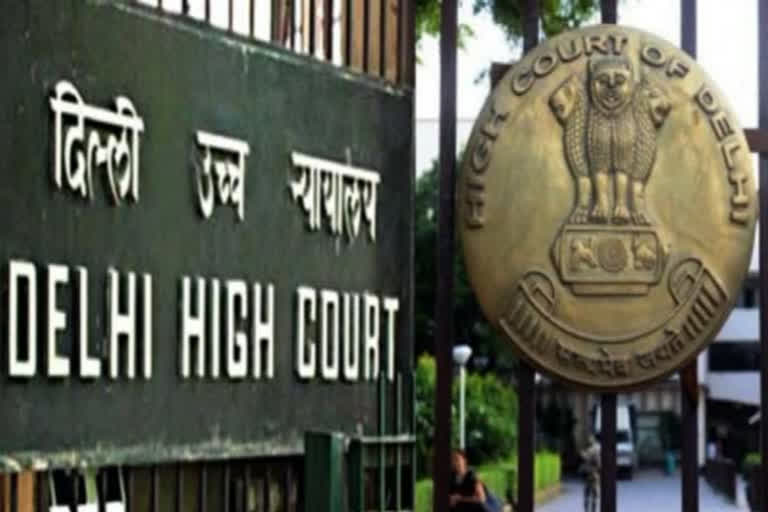New Delhi: Responding to petitions assailing 'Agnipath', the Centre has told the Delhi High Court there is no legal infirmity in the scheme for recruitment in the armed forces which was introduced in exercise of its sovereign function to make national security and defence more robust, impenetrable and abreast" with the changing military requirement.
The Centre's stand came on a consolidated counter affidavit filed in response to several petitions against the Agnipath scheme as well as pleas concerning the recruitment processes for the armed forces under certain previous advertisements. The Agnipath scheme, announced on June 14, provides for the recruitment of young people between 17-and-a-half and 21 years of age for only four years with a provision to retain 25 per cent of them for 15 more years.
Protests had erupted in several states against the scheme. Later, the government extended the upper age limit to 23 years for recruitment in 2022. The Centre told the high court that defending the Indian territory, which has a peculiar border situation, from external and internal threats requires agile, youthful and technologically adept armed forces and the Agnipath scheme, therefore, aims at reducing the average age profile of soldiers from the present 32 years to 26 years.
Recruitment through the Agnipath scheme, the central government added, involves a merit based, transparent and robust assessment process and a fair opportunity would be provided to all willing personnel to compete for regular cadre and ultimately a nationalist, disciplined and skilled manpower would be provided to society and exited Agniveers will be an asset for the nation and society.
"The policy decision to introduce the scheme was taken by the Government of India in exercise of its sovereign function to make the national security/defence arrangements of the country more robust, impenetrable and abreast with the changing military requirement of the country, said the affidavit filed by the Centre as it asserted the present batch of petitions deserves to be dismissed at the threshold itself.
The scheme was introduced to restructure the intake and retention processes in the three services with a view to evolving a youthful, modern and futuristic fighting force. The aim of the 'Agnipath' scheme was to achieve among other things a young combat force that is physically and mentally capable of taking up the new challenges anticipated by experts.
The government asserted while the scheme is not an exercise aimed at reducing the budget, it will contribute towards savings after 20 to 25 years, which can be better utilised for capability development, technology infusion and making the army strong, more capable and battle worthy, and aligned to the requirements of the future.
The government submitted with new military technologies, the conventional formations of the armed forces were losing their edge which made structural changes in overall organisation of the Indian armed forces a matter of necessity. To keep the armed forces fit and combat-ready, experts suggested reformation to achieve the golden thumb rule of armed forces being young and fit at all times, it said.
(There is) no legal infirmity in Agnipath scheme The character of future wars/military engagement, in the opinion of military experts, is likely to be ambiguous, uncertain, short, swift, lethal, intense, precise, non-linear, unrestricted, unpredictable and hybrid. "These challenges would be exacerbated by the inherent nature of terrain along our borders which ranges from the Rann swampy marshes, jungles, deserts, riverine, hills, high altitude, mountains and glaciated regions, as well as isolated island territories. Defending such territory from external and internal threats requires an agile, youthful and technologically adept Armed Forces, the affidavit said.
It said India's security environment is defined by a complex interplay of regional and global hostilities, proxy wars, infiltrations and armed aggressions. The nation's land and maritime borders face both traditional and non-traditional threats. "Concurrently, our internal threats manifest in different dimensions including an on-going proxy war on the western front starting from the region of J&K."
"On the eastern front the organizations inimical to the nation's interest are ambushing insurgencies. The Left-Wing Extremism in addition needs a strict vigil as it keeps on resurrecting intermittently, it added. It also clarified that Agnipath was not linked to 'right-sizing' of Army and that an independent study on manpower optimisation was already underway.
The affidavit said numerous consultations with stakeholders were undertaken during the past two years and the scheme envisages several benefits to the nation, including availability of a ready pool of trained and disciplined manpower for other sectors in government and private market.
Besides, military discipline, physical fitness and pride for the country will be ingrained in the citizens. The Centre refuted the contention that the introduction of the Agnipath scheme without any amendment to the Army act is bad and void in the eyes of law. It also rejected suggestions that the scheme will potentially lead to militarisation of the society.
In its affidavit, the Centre also clarified that as far as the recruitment under earlier schemes is concerned, there is no vested right in the favour of the candidates and there is no bar on it to discontinue an ongoing process to introduce a new one. The government said that post-Independence, it has been its policy to not raise any new regiment on the basis of a particular class, creed, community, religion or region and the recruitment under the Agnipath scheme is open to all eligible youth irrespective of caste and religion. (PTI)



